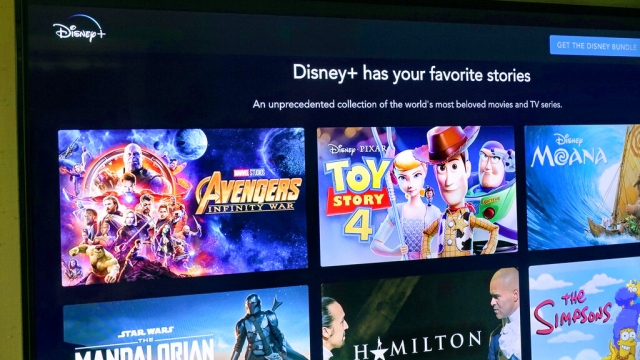Do fans actually have all the time they need to keep up with all their favorite films and TV series?
At the Chicago Comic & Entertainment Expo, some attendees told Scripps News they were "three movies behind" on the Marvel Cinematic Universe, while others said it was just a matter of scheduling time out for their favorite series.
But for the past couple years, the term "franchise fatigue" has popped up across several outlets in response to the growing number of sequels, reboots and multiverses in TV and film.
In 2022 alone, Marvel released three feature films and six titles to streaming. DC released two feature films and 15 titles to streaming, and Star Was released four new TV series.
The heavy slate of content would take months to finish, but despite the whispers of "franchise fatigue," there's still a market for it.
"I wouldn't say I'm fatigued; it's just finding the time to go watch," said Dimitri Beauchamp, a video creator and cosplayer who was dressed as Fantastic Four character Reed Richards.
"I've loved Marvel my whole life. I grew up reading the comics, and so anytime I get a chance to see my heroes come to life, I'm gonna take it," said Kara Vasseur, fellow creator and cosplayer who was dressed as Fantastic Four character Sue Storm.
SEE MORE: Disney is banking on the Marvel Cinematic Universe(s)
Fans are fueling the cinematic success of sequels and superhero films to the point that each of the top 10 movies of the 2022 domestic box office belonged to preexisting franchises like the DC Extended and Marvel Cinematic universes.
"The Marvel movies are basically a TV series in movie theaters, with sort of an open-ended narrative where you have to keep watching every installment, and there's no really no beginning or end to the story. It just kind of goes on forever," said Sam Adams, senior editor at Slate.
As brands like Marvel, DC and Star Wars upped their slate of never-ending projects to feed their fan bases, so did the rest of Hollywood.
A record-breaking 599 scripted series aired in 2022 — more than double the amount of new releases in 2012, according to FX Research. But some experts like Adams say the quantity is hurting quality.
"I think consumers do numerically have more choice than they ever had in the way that if you go to the supermarket, you can buy 12 different kinds of Cheerios," Adams said. "But it is not the same as having a diverse range of choices. So, you're getting more people running after the same things, trying to duplicate the successes of other networks, other shows, rather than trying to do something new and more creative on their own."
Despite, or maybe because of, the boom in content, streaming platforms like Netflix and Disney+ are facing slowed subscription growth, with other experts pointing to the looming recession and a possible sense of media burnout as the reasons why.
"You just look at the subscription numbers for these streaming services, and they are kind of trickling away," Adams said. "People aren't necessarily saying, 'Oh, you know, TV's getting worse,' but I think they're feeling less of a need to keep up with it."
Trending stories at Scrippsnews.com



